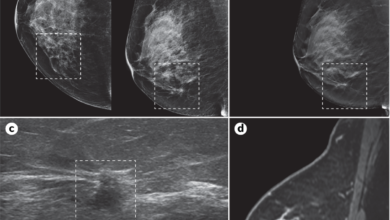Understanding Depression: A Comprehensive Exploration

In the realm of mental health, few conditions carry as much weight and complexity as depression. Defined by persistent feelings of sadness, hopelessness, and disinterest in activities once enjoyed, depression affects millions worldwide, transcending age, gender, and socioeconomic status. This article delves deep into the multifaceted nature of depression, examining its causes, symptoms, impacts, and available treatments, aiming to foster understanding and empathy towards those grappling with this pervasive mental health challenge.
Defining Depression
Depression, clinically known as major depressive disorder (MDD), manifests through a spectrum of symptoms that can vary widely in intensity and duration. At its core, depression undermines a person’s ability to function effectively, impacting their thoughts, emotions, and behaviors. While everyone experiences occasional feelings of sadness or despair, depression distinguishes itself by its persistence—lasting for weeks, months, or even years—and its ability to disrupt daily life.
Symptoms and Signs
The symptoms of depression encompass emotional, physical, and cognitive domains. Individuals may experience a profound sense of sadness or emptiness, loss of interest in hobbies, and a pervasive feeling of fatigue or lethargy. Cognitive symptoms include difficulty concentrating, indecisiveness, and negative thoughts that can spiral into feelings of worthlessness or guilt. Physical manifestations such as changes in appetite or weight, sleep disturbances, and unexplained aches and pains are also common.

Causes and Risk Factors
The origins of depression are multifaceted, influenced by a combination of genetic, biological, environmental, and psychological factors. Genetics play a significant role, with studies suggesting a hereditary component that predisposes some individuals to depressive disorders. Biochemical imbalances in neurotransmitters like serotonin and dopamine also contribute, affecting mood regulation and emotional stability.
Environmental stressors such as trauma, abuse, or chronic stress can trigger or exacerbate depressive episodes. Life events such as loss of a loved one, financial difficulties, or significant life changes (like moving or changing jobs) can also precipitate depressive episodes in susceptible individuals. Moreover, certain medical conditions and medications can contribute to the onset of depression or exacerbate existing symptoms.
Types of Depression
Depression exists in various forms, each with its own unique characteristics and diagnostic criteria:
1: Major Depressive Disorder (MDD)
Characterized by persistent low mood and loss of interest or pleasure in usual activities.
2: Persistent Depressive Disorder (Dysthymia)
A chronic form of depression lasting two years or more, characterized by milder but long-lasting symptoms.
3: Seasonal Affective Disorder (SAD)
Occurs seasonally, typically in winter months, due to reduced exposure to sunlight.
4: Bipolar Disorder
Features periods of extreme low mood (depression) alternating with periods of unusually high or irritable mood (mania or hypomania).
Impacts of Depression
The impact of depression extends beyond individual suffering to encompass social, occupational, and familial realms. People with depression may withdraw from social activities, strain relationships, and struggle at work or school. Productivity declines, and financial stability can be compromised. In severe cases, depression can lead to suicidal thoughts or behaviors, underscoring the urgent need for effective intervention and support systems.
Treatment and Management
Fortunately, depression is treatable, and several effective therapies exist:
1: Psychotherapy
Cognitive Behavioral Therapy (CBT), Interpersonal Therapy (IPT), and other forms of talk therapy help individuals identify and change negative thought patterns and behaviors.
2: Medication
Antidepressants, such as selective serotonin reuptake inhibitors (SSRIs) and serotonin-norepinephrine reuptake inhibitors (SNRIs), can alleviate symptoms by rebalancing neurotransmitter levels in the brain.
3: Lifestyle Changes
Regular exercise, adequate sleep, a balanced diet, and stress management techniques (e.g., meditation or yoga) can complement medical treatment and improve overall well-being.
4: Support Groups and Peer Support
Connecting with others who have experienced similar challenges can provide valuable emotional support and reduce feelings of isolation.

Seeking Help and Breaking Stigma
Despite the availability of effective treatments, many individuals with depression do not seek help due to stigma, lack of awareness, or misconceptions about mental illness. It is crucial to foster open conversations about depression, educate communities about its realities, and promote empathy and understanding towards those affected. Encouraging early intervention and destigmatizing mental health treatment can save lives and improve outcomes for individuals grappling with depression.
Conclusion
Depression is a pervasive mental health condition that affects millions worldwide, with far-reaching implications for individuals, families, and societies. By understanding its causes, symptoms, impacts, and treatment options, we can collectively work towards supporting those affected and breaking down barriers to mental health care. Empathy, education, and accessible resources are essential in navigating the complexities of depression and fostering a more compassionate society where mental health is prioritized and respected. Together, we can mitigate the burden of depression and help individuals reclaim their lives with dignity and hope.



